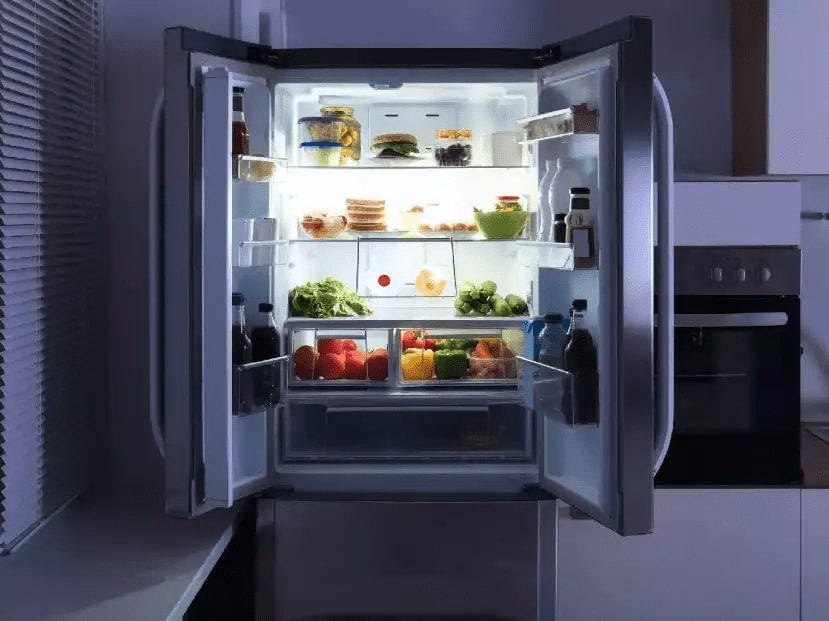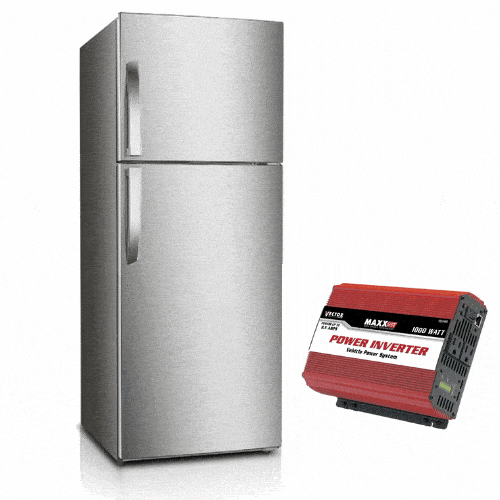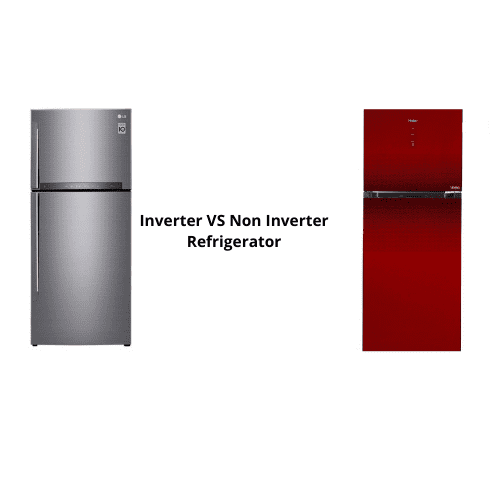Be Smart with Inverter Refrigerator


The term inverter is commonly used for air conditioners to help buyers distinguish between an inverter and a typical air conditioner.
The significant difference is in the energy-saving and the cooling capacity, which creates a clear ground to make an effective buying decision. The benefit surpasses the initial cost in the long term. When compared to a typical system, inverter technology utilizes less energy.
Buyers are wise to choose a product based on its benefits; even influencers also choose/prefer to buy an inverter product. Inverters are becoming increasingly popular among buyers familiar with this technology's features and benefits. It is important to deliver/provide information to other consumers to make smart decisions when purchasing an electrical product.
What is an Inverter
An inverter is a device that transforms battery power (DC) into higher-voltage alternating current (AC) and stores it in the battery. An inverter allows electrical products to use less energy, resulting in lower utility bills and increased product sustainability. It's utilized to cut down on energy wasted by electrical devices like air conditioners and refrigerators.
Most inverters are installed and utilized in conjunction with a battery bank of some kind, which is a popular setup in off-grid solar configurations. The specific device or circuitry design determines the input voltage, output voltage and frequency, and overall power handling. The inverter does not generate electricity; instead, the DC source provides it. In a nutshell, it's a gadget that converts one voltage to another, allowing an electrical product to run more efficiently while using less energy.
Some People think Inverter is only applicable for Air Conditioners, but in real life, it can be applicable in many electrical devices like refrigerators, TV, computer, small car adapters, household, large grid systems, etc.
How Inverter Works in Refrigerator


In Refrigerator, it works pretty the same as other inverter devices. A variable-speed compressor in an Inverter Refrigerator regulates its speed based on the ambient temperature and the load on the refrigerator. In an Inverter Refrigerator, the compressor does not start and stop but instead runs at a low enough speed to keep the fridge at the desired temperature at all times.
Inverter Refrigerators is Better than Normal Refrigerator


The inverter is an energy-saving technology that is quite popular among consumers. Because of its better power efficiency and reduced noise, Inverter Refrigerators quickly become a popular choice among homes. In terms of Non-Inverter Refrigerators or any other electronic devices, it is more productive, eco-friendly, and cost-effective.
- Energy-Saving: Inverter compressors automatically slow down when they need to reduce the temperature actively. This lessens energy consumption while reducing wear and tear on the compressor. As a result, Inverter Refrigerators are more energy savers.
- Fast Cooling: The compressor motor speed of an inverter can be controlled. Once the fridge compartment is cool, the inverter technology reduces the engine’s speed to conserve electricity and refrigerant. It gives faster cooling because of various compressor speeds.
- Eco-Friendly: An Inverter Refrigerator consumes less energy and releases less harmful emissions into the air. Overall this is eco-friendly and grabs the attention of consumers. Also, it is one of the latest technologies in the HVAC field, which gives much more than traditional/ Non-Inverter Refrigerators and other electronic devices.
- Comfort Giving: Another significant benefit of this type of system is providing comfort to the users. When compared to an ON/OFF compressor, temperature variation is less. This ensures that the users have a comfortable environment at all times.
- Noiseless Operation: The user does not face uncomfortable noise from the refrigerator because inverters do not create noise while operating. Compared to the Non-Inverter compressor, the outdoor unit with the inverter compressor is substantially quieter, which gives the user a calm and peaceful environment.
- Economical: Inverters are economical in the long term. Though Non- Inverter Refrigerators are cheap compared to inverter Refrigerators, in the long term, Inverters are economical for the users. It consumes less energy, so electricity bills are much lower than non-inverter Air conditioners or refrigerators. Compared to typical Non-Inverter refrigerators, Inverter refrigerators are superior in every regard. However, there are certain downsides to mention about this technology. Inverter items are technically challenging to fix and expensive to repair, but in the long run, inverter electrical devices are advantageous.
Conclusion
Inverter technology is currently one of the most advanced in the HVAC business, offering far more benefits than typical Non-Inverter electronics equipment such as refrigerators, air conditioners, and televisions. Buyer understanding and perception of Inverters can assist them in making an informed choice about buying inverter electronic devices. The world is going toward environmentally friendly products, and it is past time for Bangladesh to adopt inverters as well.

